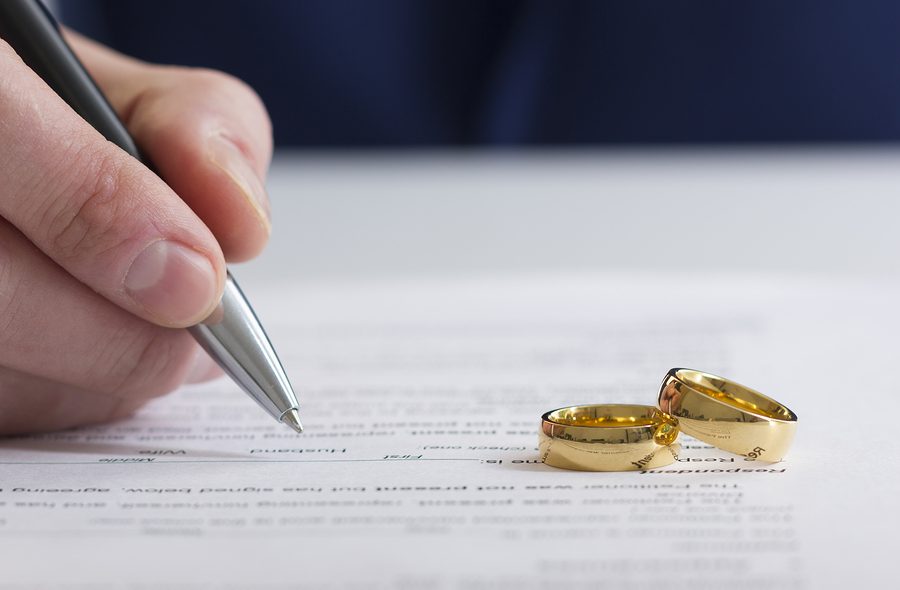Filing for bankruptcy when someone is married can be a joint process, or it can be done by only one spouse proceeding with the case. Ultimately, it depends on the type of debt and the financial situations for both spouses. For example, if one only spouse owes a specific debt or debts, then that spouse may be able to proceed on a bankruptcy alone, especially if the other spouse has good credit and very few other debts. Proceeding with a single bankruptcy case while married can be complicated, and in certain situations, it can adversely affect the non-filing spouse, but not always.
Joint Debts
In any marriage, parties bring in their own, individual debts, and debts are almost always incurred during the marriage, as well. One spouse may choose to take out a loan, not naming the other spouse on the debt, which means only the spouse whose name is on the debt is responsible for what is owed. If that spouse is not able to continue making payments on the debt, he or she can proceed with a bankruptcy to discharge that debt. If the debts listed in that bankruptcy case belong to the filing spouse alone and not the non-filing spouse, discharging the filer’s debts and liabilities should be a straightforward process. It becomes more complicated if any of the debts listed in the bankruptcy case belong to the non-filing spouse. In these situations, these joint debts will normally remain with the non-filing spouse.
If the filing spouse pursues a Chapter 7 bankruptcy case and names debts that belong to both spouses, unfortunately creditors who were pursuing payment from him or her can now pursue payment from the other spouse. The filing spouse may receive a clean slate with a bankruptcy discharge of these debts, but this shift in ownership will only push off responsibility for payment of these debts to the non-filing spouse. If, however, the filing spouse files a case under Chapter 13 bankruptcy and begins his or her repayment plan, his or her spouse will also be protected under the case’s stay so long as the filing spouse remains current on all bankruptcy plan payments. If the filing spouse does not stay up on his or her repayment plan, the non-filing spouse may soon find himself or herself fielding calls from joint debt creditors.
Credit of the Non-Filing Spouse
Another commonly expressed concern has to do with the credit score of the non-filing spouse. A person filing for bankruptcy should almost always expect a drop in his or her credit score, but should this be expected for the non-filing spouse, as well? Like many things in the law, it depends. If a joint debt is involved and is included as part of the filing spouse’s bankruptcy case, this bankruptcy filing may show up on the other spouse’s credit report. Additionally, if the married spouses intend to apply for any type of joint financing in the future, the bankruptcy on the one spouse’s credit history will make that process a little more difficult.
Joint Property
While joint debts are fair game in a bankruptcy case, the same goes for joint property, especially if that property was acquired by both spouses after they were in a relationship. If the joint property happens to not fall in one of the categories of property protected under Florida’s bankruptcy exemptions, the asset is fair game to be sold to pay off the filing spouse’s debts. If the non-filing spouse is able to successfully argue that he or she brought the property into the marriage, acquired it by gift during the marriage, acquired it as part of an inheritance, or is able to pay the debt associated with the joint property, that asset may be able to stay with the non-filing spouse.
Collection Calls
The automatic stay protects the person filing for bankruptcy from collection proceedings, including phone calls from debt collectors. In a Chapter 13 reorganization bankruptcy case, the co-debtor shares that protection. However, this does not always mean collection agencies will not try to pursue payment from the non-filing spouse. Collection agencies will do this in an effort to trick the non-filing spouse into making payment. However, if the spouse that did not file for bankruptcy is on the receiving end of one of these calls, he or she should request proof of responsibility for the debt amount. If the debt solely belongs to the filing spouse, the non-filing spouse can then demand that the calls stop. If a bankruptcy case has already been filed by the spouse, direct those phone calls to the filing spouse’s bankruptcy attorney after making the formal request that the calls cease.
Please click here to read more.
If you have questions on this topic or are in financial crisis and considering filing for bankruptcy, contact an experienced Miami bankruptcy attorney who can advise you of all of your options. As an experienced CPA as well as a proven bankruptcy lawyer, Timothy Kingcade knows how to help clients take full advantage of the bankruptcy laws to protect their assets and get successful results. Since 1996 Kingcade Garcia McMaken has been helping people from all walks of life build a better tomorrow. Our attorneys’ help thousands of people every year take advantage of their rights under bankruptcy protection to restart, rebuild and recover. The day you hire our firm, we will contact your creditors to stop the harassment. You can also find useful consumer information on the Kingcade Garcia McMaken website at www.miamibankruptcy.com.

